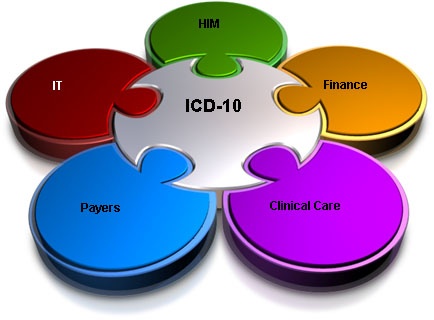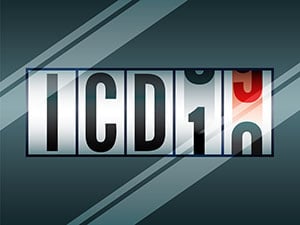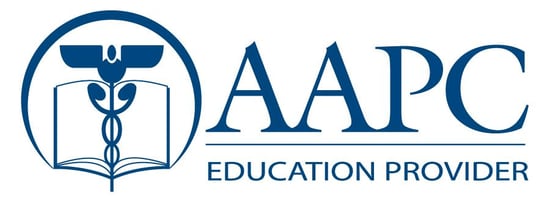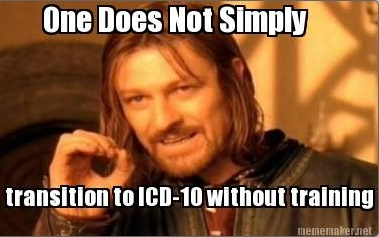
Everyone is talking about it, but are you ready?
It is becoming increasingly clear for everyone working in a medical field that the current U.S. medical coding system is outdated and insufficient. It is no longer a question of whether we should implement an updated classification system, but when we can have it in place.
The International Statistical Classification of Diseases and Related Health Problems (ICD) is a medical classification system developed by the World Health Organization (WHO).
They have further defined the system as the foundation for an international identification of health trends and global statistics using a standardized language.
With the help of the ICD coding system, we can classify diseases, indications, signs and symptoms, atypical findings, complaints, social conditions, as well as external causes of injury or disease. 
As such, the current ICD-9-CM has been an invaluable help for U.S. medical administrators, physicians and nurses since its implementation in 1979.
However, the system has been proven to have several serious issues. One of the most important is that the classification system is organized scientifically, which may not sound like a serious problem.
That said, what it means is that we have a limited amount of categories and subcategories.
We have now reached the end of the line because the majority of numbers have been assigned a diagnosis. As a result, we have become extremely limited and are no longer able to keep up with recent discoveries and breakthroughs being made in medical research.
In other words, we cannot use the current system to use a standardized language to categorize new diseases in relation to previous disorders.

With the expected revision, we will gain access to updated content, as well as an expanded range of code designations, including the options to code for ambulatory care conditions and known risk factors in primary healthcare.
The implementation of ICD-10 is inevitable and will affect all medical professionals, from physicians and nurses, to secretaries, insurance providers, medical coders, and billers in their daily task to report healthcare diagnoses and procedures.
To help you get trained, prepared, and certified, the American Academy of Professional Coders (AAPC) has developed a series of guidelines and training options to provide assistance and continuing education.
Since its foundation in 1988, the AAPC provides training and professional certification to those representing the best in the field of medical coding.
Medical professionals credentialed through AAPC will have proven their mastery of all code sets, evaluations, management principles, and documentation guidelines currently used in the United States.
When discussing the U.S. implementation of ICD-10, it is important to emphasize that we usually refer to ICD-10-CM (Clinical Modifications) and ICD-10-PCS (Procedure Coding System), which should not be confused with the widely used international system.
The U.S. implementation of the ICD-10 coding systems has been scheduled for October 1, 2015, and all Health Insurance Portability and Accountability Act (HIPAA) covered entities should plan accordingly.
The AAPC cautions that the Centers for Medicare & Medicaid Services (CMS) has confirmed that extension beyond the October 1, 2015 compliance date will not be granted by the Department of Health and Human Services (HHS).
If you fail to comply with the HHS requirements, several things may happen: you may receive a federal fine; if new claims are not properly formatted to the new requirements, your reimbursement may be severely delayed or rejected; and you will miss out on the long-term benefits of improved patient care and the ability to communicate with other healthcare entities.
It has also been suggested that an increased use of a standardized international medical language will create a substantial improvement of the global healthcare quality.
Although the current ICD-9-CM coding system represents an impressive 13,000 medical codes, ICD-10-CM alone boasts approximately 68,000 diagnostic codes.
In addition, the implementation of ICD-10-PCS will have separate sections for different procedures and give us access to approximately 79,000 codes that will only be used in the United States.
The ICD-10-PCS is designed to replace Volume 3 of ICD-9-CM for inpatient procedure reporting and will primarily be used by healthcare providers and payers.
The new system does not use medical terminology based on Latin or eponyms, and AAPC strongly cautions that the documentation requirements are significantly different from the older system.
As a result, the implementation will affect the inpatient medical record documentation and extensive training will be required during the transition period.
The AAPC advises that all healthcare IT systems will be required to have access to both ICD-9 and ICD-10 during the transition period of at least two years.
Reimbursement mapping will be necessary to ensure that corresponding diagnostic codes can be identified for various reasons, such as medical treatment, healthcare research, and insurance payout compliance.
The revised classification system will give us access to a wider code range, as well as greater detail through a seven-digit alphanumeric coding system, replacing the current five-digit code set.
With ICD-10-CM, a single code can report both type of disease, as well as current manifestations.
The medical professional will be able to select codes from complex grids based on the type of procedure performed, approach, and body part, in combination with other features, such as the location of the disease within the selected body part.
At this point, it might be worth to point out that these two systems also have many similarities, including guidelines, conventions, and the organization of the codes.
The AAPC is confident that anyone qualified to code ICD-9-CM should be able to make the transition to ICD-10-CM.
Even if you are a part of the highly skilled medical staff in charge of the coding faculty or working with health information management, it is time to consider your ICD-10-CM training and certification.
Medical professionals without a solid clinical experience are required to prepare for the advanced specificity and clinical requirements of ICD-10-CM.
The AAPC emphasizes that due to the clinical nature of the system, a refresher course in anatomy and/or physiology is strongly recommended.
To summarize, the question is not if the transition to ICD-10-CM will happen or not, but how prepared you will be when it is.

-1.png)

